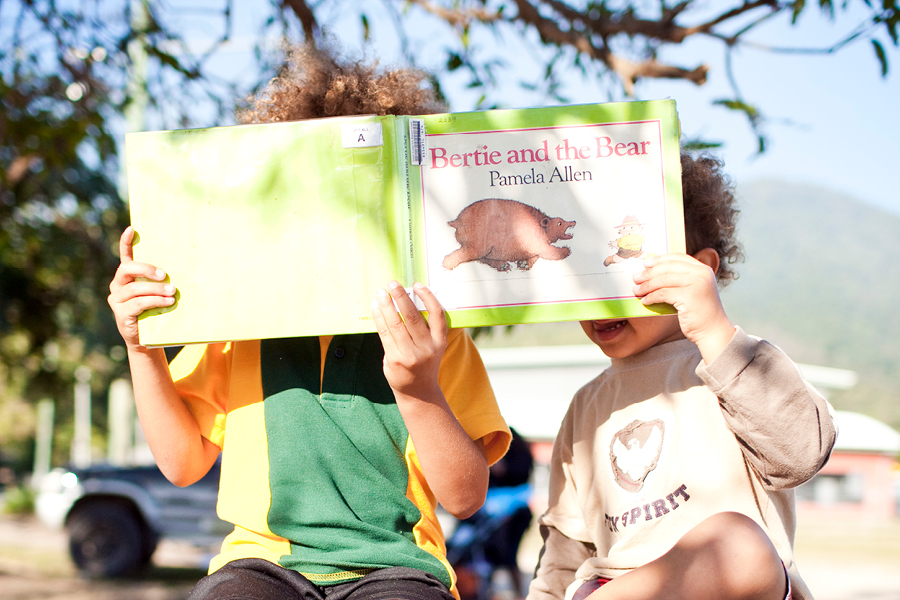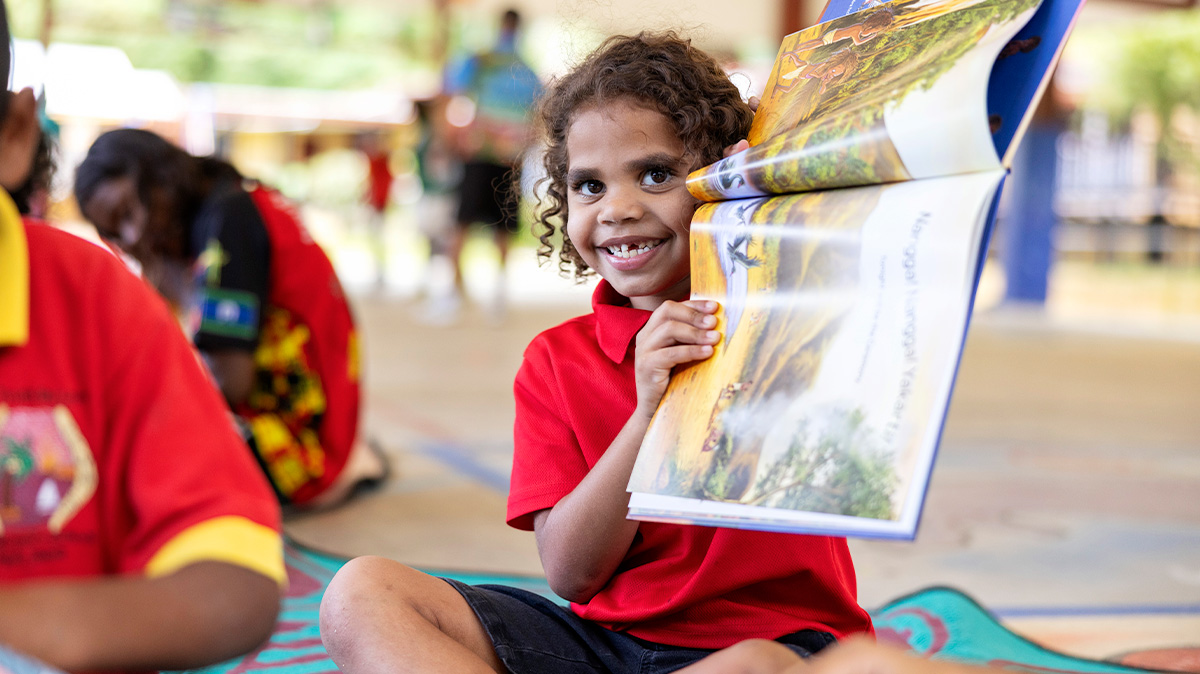Early access to literacy education and support is future-defining for kids – it informs the development of crucial lifelong skills, from problem-solving to decision-making. But not every child has the same access to education and support. According to the Grattan Institute, one in three students in a typical Australian classroom can’t read well, and nationally, Aboriginal children are more likely to be below national minimum standards in reading than their non-Aboriginal classmates.
The Australian Literacy and Numeracy Foundation (ALNF) is working hard to change this by helping to fund literacy programs that give every child the chance to read, learn and succeed, particularly in remote and Indigenous communities.
What Does ALNF Do?
Kim Kelly and Mary-Ruth Mendel founded ALNF in the late 1990s. With Kim’s background in business management and Mary-Ruth’s in speech pathology, both co-founders united their professional skills in their common goal to empower children through literacy. Since its inception, ALNF has helped people, particularly children, to become active and engaged members of their communities through improving their literacy skills. It particularly supports literacy for students of refugee background and Indigenous communities, and is also working to revive, maintain and revitalise Indigenous languages with its award-winning Living First Language platform.

How We Can Help
For the past 13 years, Officeworks has been a proud partner of ALNF and its mission to help students write their own bright futures. Every September, Officeworks runs the Literacy Is Freedom Appeal, raising donations for ALNF. The partnership has provided support for 40,954 children at more than 250 sites across the country, with 360,030 books and 55,473 Literacy Packs provided. In 2024, the appeal raised $649,312, and all donations from our annual appeal contribute towards ALNF’s life-changing efforts. Learn more about their programs and what your donations could do for those in need across the country…
Literacy and Numeracy Packs
Literacy and Numeracy packs are created for preschool, primary school and high school students. They contain age-appropriate learning resources, such as plasticine for kinaesthetic and fine motor skill development for preschoolers or dictionaries for high school students, all packaged in a fun and reusable tote bag. This life-changing initiative has been shown to create higher levels of student, parental and community engagement in literacy learning. The packs also contain books from ALNF’s Share-A-Book program.
Indigenous First Language Program
Focused on preserving and strengthening Indigenous Australian languages, this ALNF program is a community-led effort that empowers Indigenous communities to rejuvenate their native culture through teaching their language. The program has also developed an award-winning digital platform, Living First Language Platform, which is an interactive resource that teaches Indigenous languages.
Early Language and Literacy Program
This program aims to empower educators, parents and community members to enact change within their own communities by providing them with the tools, resources and strategies to develop children’s literacy skills. The ALNF primarily works with remote communities that struggle with access to education support, health and development challenges and trans-generational illiteracy.
Refugee Action Support Program
Focused on supporting children from refugee backgrounds, this initiative is designed to help develop language and communication skills for a smooth transition into Australian classrooms. The program offers a secure learning environment through one-on-one tutoring to make it easier to learn and receive personalised support. This program operates through its partnership with the Department of Education and participating universities to give training educators real-life experience in their field while changing the lives of those in need.
Share-A-Book Program
This ALNF initiative provides new and quality pre-loved books to Indigenous, refugee and marginalised communities in need of resources. Its goal is to distribute culturally appropriate books to kids across the nation to help boost their reading skills and inspire their imaginations. Book donations from schools, publishers, retailers and individuals are all welcomed and go into ALNF Share-A-Book Libraries in local schools and community centres across the country.
How to Support the Literacy is Freedom Appeal
You can support students to write their own bright futures this September by donating to ALNF at Officeworks in-store and online. Funds raised will go towards the organisation’s life-changing literacy programs to make sure all kids thrive at school and beyond.
What to Try
- Australian Literacy and Numeracy Foundation Donation $2
- Australian Literacy and Numeracy Foundation Donation $5
- Australian Literacy and Numeracy Foundation Donation $10
- Australian Literacy and Numeracy Foundation Donation $20
SEE ALSO: 7 Ways to Help Your Kids Improve Their Literacy Skills
This article was originally published in September 2023 and has been updated.






